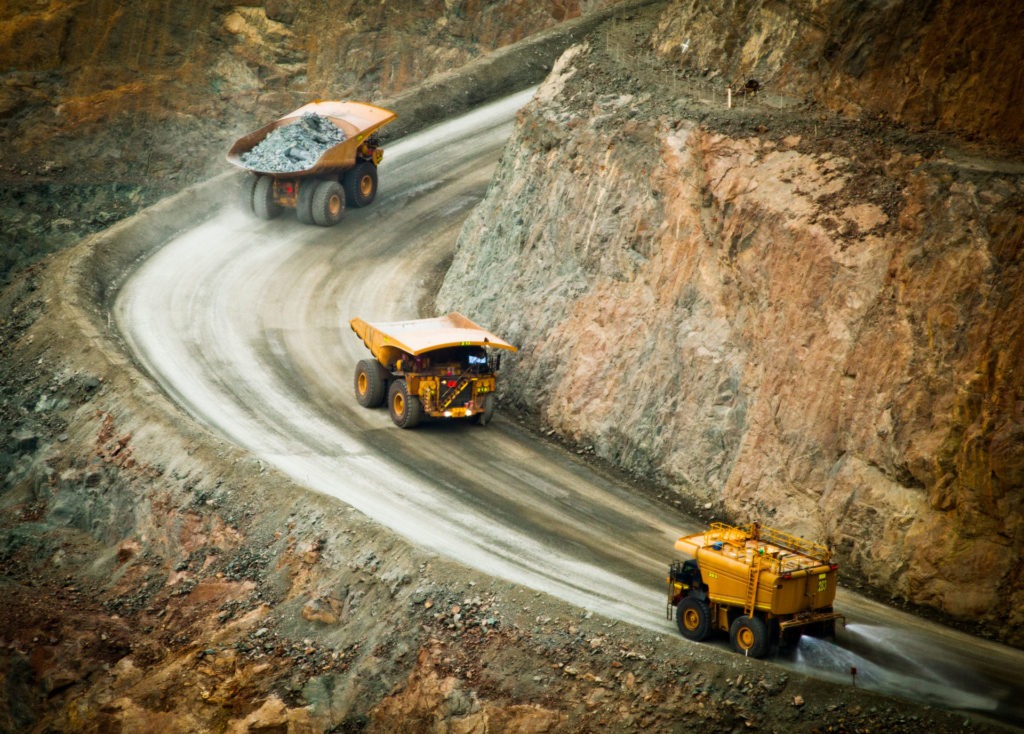The mining sector has been desperately trying to attract more women, including by issuing strong targets for gender diversity and spending big on promoting its diversity and inclusion efforts.
But the findings of a report into Western Australia’s mining industry reveals there are systemic issues that requiring urgent attention long before launching the next female recruitment drive.
And given the employers within the mining sector also happen to be some of the richest and most influential companies in Australia and the world – like BHP and Rio Tinto – they simply can’t argue they don’t have the resources to immediately address the horrific treatment of women occurring on their own sites.
Women in WA’s mining sector have been subjected to assaults, bosses demanding sex in exchange for promotions, unsolicited nude photos and other shocking experiences, according to the Western Australia Parliament’s inquiry into sexual harassment.
Tabled in parliament on Thursday, the report highlights the experiences of women across the sector, where workers commonly fly in for set periods of time to live in temporary accommodation.
The submissions make for disturbing reading. There are stories of inappropriate comments, of women reporting being touched without consent and feeling genuinely afraid of being assaulted.
But it gets even worst.
One woman’s submission shares how she was knocked unconscious in her accommodation and “awoke to find her jeans and underpants around her ankles”.
Other women highlight a practice of “shoveling” – where iron ore is put on the trucks of female drivers if they refused to comply with sexual requests.
The experiences shared in the report come after almost a year of research, with 100 submissions given, and following a number of women going to police with claims of being sexually assaulted at major WA mining sites.
Inquiry chair Libby Mettam told the state parliament on releasing the report that the findings are “inexcusable”.
“To hear the lived reality of the taunts, attacks and targeted violence, the devastation and despair the victims experienced, the threats or loss of their livelihood that resulted, was shattering and it’s completely inexcusable,” she said.
“It is completely inexcusable and simply shocking that this could be taking place in the 21st century in one of the state’s most lucrative industries,” she said.
“This represents a failure of the industry to protect its workers and raises real questions about why the government was not better across this safety issue.”
She also spoke about hearing evidence that perpetrators had been moved to different work sites following complaints, or had been able to gain other employment within the sector. She suggested the industry explore options for a register of offenders – resembling the working with children card.
The report also recommends a government forum be established to hear and document the experience of victims, while a system for formal apologies and compensation is also explored.
Mark Folkard, a backbencher and member of the committee behind the report, said a royal commission should be established, citing he believes there are “serious sexual predators” in the sector who have gone unchallenged for years.
Despite significant targets and efforts to bring more women into their workforces, the mining sector continues to struggle to attract women – and it’s hard to see how this report will help the cause, even with the current promises on offer to do more.
Last year, BHP revealed that it had taken action against perpetrators – sacking 48 staff for inappropriate conduct over the two years until September 2021.
Rio Tinto meanwhile has shared promises to improve their FIFO accommodation facilities – and provide avenues for more people to call out unacceptable behaviour.
Earlier this year, an internal Rio Tinto report revealed that almost have of its employees have experienced bullying, harassment and/or racial discrimination. It also found that 30 per cent of women have experienced sexual harassment within the workplace, with 21 women reporting actual or attempted rape of sexual assault in the past five years.
Back in February and still only a year into the job, Rio Tinto Executive Jakob Stausholm described the results as “disturbing”. He issued an apology to every team member, past or present, who had experienced such behaviour and said “this is not the kind of company we want to be.”
He also conceded he didn’t know just how much bullying exists in the company, and just how systemic it was.
He promised to implement the 26 recommendations shared in that internal report, written by former Australian Sex Discrimination Commission Elizabeth Broderick.
Tara Diamond, Director of Operations for the Australian Resources and Energy Employer Association (AREEA), says that resources and energy employers are working “vigorously to eliminate sexual harassment from the industry.”
She said that although “disappointed at the depth of the issues” uncovered, the industry welcomes the report.
“This report will add significant further value to the work being undertaken in the hope such an inquiry need not be repeated in the future,” she said.
“The industry is committed to eradicating such behaviour and rebuilding its reputation as one that has safe and respectful workplaces with zero tolerance for sexual harassment and all other forms of bullying and harassment.”
That commitment must run deep, and happen immediately.


